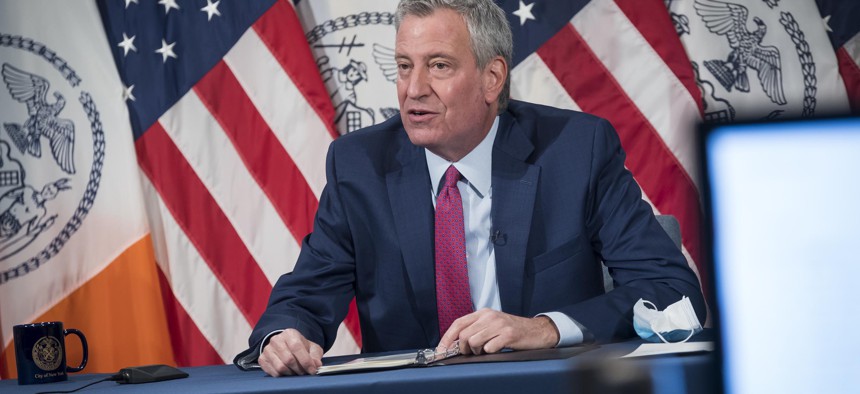NYC pilot program will try to remove NYPD from mental health calls

New York City Mayor Bill de Blasio at press conference. Ed Reed / Mayoral Photography Office
A pilot program in New York City will be launched to replace police officers with mental health professionals when responding to emergency mental health calls, New York City Mayor Bill de Blasio announced on Tuesday, Gothamist reports.
The pilot will begin in February and encompass two unspecified high-need neighborhoods. Health professionals and crisis workers will respond to non-violent mental health calls sent to 911 in those areas. In cases that involve a weapon or “imminent risk of harm,” New York City Police Department officers will accompany the teams.
Calls to restrict law enforcement’s role responding to mental health crises have taken on a new urgency this year after the killing of Daniel Prude in Rochester. People with untreated mental illnesses were 16 times more likely to be killed in a police encounter compared to others approached by law enforcement, according to the Treatment Advocacy Center. Those risks are compounded for Black and Hispanic people, who are killed by police at disproportionate rates. Correct Crisis Intervention Today - NYC, a coalition of mental health advocates, found that at least 16 people dealing with mental health challenges have been fatally shot by the NYPD in New York City since 2015.
New York City has made efforts to rely less frequently on police in responding to mental health crises. Mobile crisis teams of social workers and people with lived experiences through certain crises can be deployed by hospitals or individuals through the city’s NYC Well website to respond to certain situations. It also expanded use of its Health Engagement Assessment Teams, which allow mental health professionals and peers to respond to non-emergency calls directed to them by city agencies and 311. But advocates have criticized these initiatives for being less responsive and not being targeted to addressing emergencies.